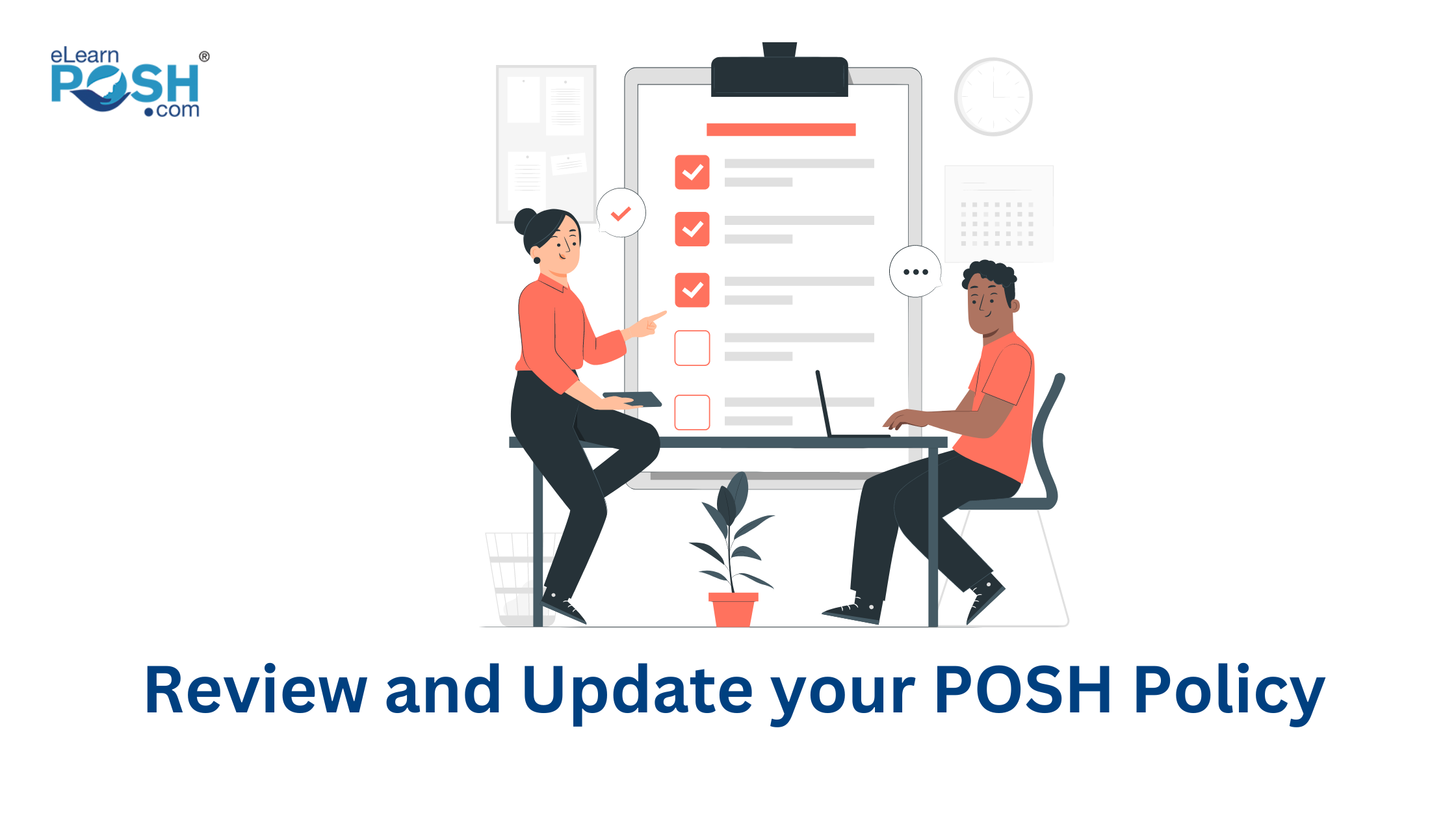 Introduction
Introduction
In today’s ever-evolving workplace, the importance of maintaining a safe and respectful environment cannot be overstated. Central to this goal is the implementation and regular update of the Prevention of Sexual Harassment (POSH) Policy. Such policies not only serve as a legal shield, protecting both employees and the organization, but also as a testament to the organization’s commitment to fostering a culture of respect and dignity. As the nature of work environments and societal attitudes towards sexual harassment continue to transform, the need to regularly review and renew POSH policies has never been more critical. This blog highlights the importance of regularly reviewing and updating an organization’s POSH policies to maintain legal compliance, ensure employee safety, and uphold a positive organizational reputation in response to changing workplace norms and challenges.
What is the importance of POSH Policies?
Legal compliance:
POSH policies are essential for adhering to legal mandates against sexual harassment, ensuring organizations stay compliant with evolving laws to avoid legal penalties and safeguard their credibility.
Safety and Well-being:
These policies are critical for creating a harassment-free workplace, protecting employees from psychological and physical harm, enhancing job satisfaction, and fostering a culture of respect. Implementing and updating POSH policies help maintain a safe environment, boosting overall employee well-being.
Organizational Reputation:
A strong and actively enforced POSH policy positively influences an organization’s image, signaling a commitment to employee safety and ethical standards. This can attract talent, build trust with clients and partners, and prevent reputational damage that could arise from incidents of harassment. In summary, POSH policies are key to legal compliance, employee well-being, and sustaining a positive organizational reputation.
What are the challenges in implementing POSH Policies?
Implementing POSH policies within an organization comes with its set of challenges, from resistance to change to ensuring widespread awareness and accessibility.
- Resistance to Change: Resistance within organizations can stem from misunderstanding the importance of POSH policies, fear of altering workplace dynamics, or a preference for maintaining the status quo.
- Lack of Awareness: A significant challenge is ensuring that all employees are fully aware and understand POSH policies, beyond mere notification, requiring in-depth education on sexual harassment, reporting procedures, and policy details.
- Ensuring Accessibility: POSH policies need to be accessible to every employee, regardless of their role, status, or location, in various formats and languages, with straightforward, confidential reporting mechanisms.
- Evaluation of Policy Effectiveness: Regularly assessing the effectiveness of POSH policies is challenging. Organizations must establish success metrics and feedback mechanisms, necessitating a continuous commitment to monitoring and readiness to adapt based on feedback and findings.
Effectively addressing these challenges demands a committed and continuous effort from every level within an organization to ensure the successful implementation of POSH policies.
What are the best practices for reviewing and renewing POSH Policies?
Reviewing and renewing POSH policies are essential practices to ensure they remain effective and relevant. Best practices in this process include:
- Clear Definitions and Examples: Revise the policy to include clear, comprehensive definitions of harassment, including examples of unacceptable behaviour and newer forms of harassment like cyberbullying. This helps in eliminating ambiguities and making expectations crystal clear to all employees.
- Adopt a Trauma-Informed Approach: Revise POSH policies to be sensitive to the emotional impact of harassment. This means training managers and HR staff on how to handle complaints with care, making sure victims feel supported without adding to their distress.
- Regular Review and Update: POSH policies should be reviewed regularly, at least annually, to ensure they align with current laws, societal norms, and organizational changes. This helps in addressing any new types of workplace harassment and legal requirements.
- Stakeholder Engagement: Engaging a broad range of stakeholders, including employees from various levels, HR professionals, and legal experts, in the review process ensures diverse perspectives are considered. This collaborative approach can help identify gaps in the current policy and foster a culture of inclusivity and respect.
- Customized Training Based on Roles: Offer specialized training modules tailored to the different roles within the organization. For instance, training for managers and leaders should focus on how to respond to harassment complaints, while training for employees might focus on recognizing harassment and understanding their rights and responsibilities.
- Feedback Mechanism: Establishing a clear and confidential feedback mechanism allows employees to share their experiences and suggestions for improving the POSH policy. This feedback can provide valuable insights into the policy’s effectiveness and areas for improvement.
- Transparency and Communication: Communicating changes and updates in the POSH policies transparently and effectively is crucial. Employees should be made aware of any revisions, the reasons behind them, and how they impact their workplace conduct and safety.
- Compliance Check: Ensure the renewed policy complies with the latest legal requirements and best practices in workplace safety and harassment prevention. This may involve consulting with legal experts specializing in employment law.
- Accessibility: Make the updated POSH policy easily accessible to all employees through various channels, such as the company intranet, email communications, and physical copies in common areas. Ensuring the policy is available in multiple languages can also be beneficial in diverse work environments.
Conclusion
In conclusion, regularly reviewing and renewing POSH policies is not just a legal requirement but a moral imperative for organizations committed to fostering a safe, respectful, and inclusive workplace. By adopting best practices such as stakeholder engagement, continuous training, transparent communication, and ensuring accessibility, organizations can ensure that their POSH policies remain relevant, effective, and aligned with both legal standards and organizational values. This ongoing process reflects an organization’s dedication to protecting its employees and upholding a culture of zero tolerance towards sexual harassment, ultimately contributing to a healthier, more productive work environment for everyone.
For more updates on POSH, kindly follow our LinkedIn page.
To book a personalized demo call directly with the Subject Matter Expert, you can write to sales@succeedtech.com



Leave a Reply